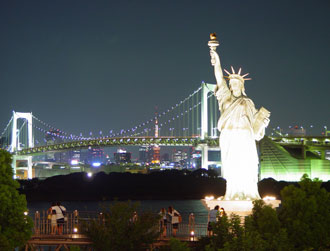On Thursday China issued a white paper on national defense that declares that China will never seek hegemony or military expansion now or in the future, no matter how its economy develops. It’s the seventh time China has issued such a declaration since 1998.
Such declarations are always a source of amusement for me. As if any such proclamation has ever prevented a nation from seeking to expand at an opportune time. As if such declarations could ever silence the hawkish demagogues among American politicians. And most amusing — as if hegemony can be achieved by building up a powerful military and a giant economy.
China can be excused for seeming preoccupied with the concept of hegemony. More than any nation China has felt the potentially awful power of American hegemony. In the days of the Cold War the U.S. successfully kept China an impoverished pariah nation forced to hide behind its so-called bamboo curtain in order to keep its citizens from falling under the hegemon’s sway.
But U.S. hegemony was hardly the product of its military might. True, it was a big player in the war against Japanese and German imperialism. But outside of that context, the U.S. has always had trouble mustering the political will for prolonged military adventures. Even the poor, starving China of 1951 was able to fight the mighty U.S. hegemon to a standoff on the Korean peninsula. The far smaller and even more impoverished and isolated North Vietnam was able to boot the U.S. hegemon from Vietnamese soil in 1975.
What the old China and the old Soviet Union and the old Vietnam feared more than anything wasn’t U.S. arms, nor even U.S. prosperity, but the ability of every American to enjoy a degree of freedom unknown in the rest of the world. If a substantial number of the citizens of any totalitarian society developed an appreciation for such freedoms, the regime would collapse overnight. The regimes’ desire for self-preservation was the reason for the iron curtain and the bamboo curtain. And of course that compulsion to self-isolate, driven by fear of that highly infectious strain of American freedom, kept America’s rivals poor and highly uninfluential, thereby ensuring America’s continued hegemony. Not that there wasn’t some conscious efforts on the part of some elements of U.S. society to undermine those rivals. But those efforts were relatively unimportant compared to the hegemonistic might of America’s glaring freedom.
America’s unmatched degree of freedom — and its source of hegemonistic power — is a product of many factors that no other society can match.
Of course, our constitutional guarantees of freedom of speech and assembly, as well as due process, are an important component. But the constitutions and laws of many other nations contain similar if not identical guarantees. What gives force and substance to such guarantees is the quality of the officials charged with administering them — judges, prosecutors, defense lawyers, legislators, chief executives, cops, even courthouse clerks.
American officials are less corruptible than officials of most nations. That has instilled a degree of public trust in the legal system that didn’t exist in most of the nations from which the American population migrated. That trust is what enables Americans to enjoy an unparalleled degree of freedom from fear of oppression. Without that, a population is unlikely to engage in speech, actions or endeavors that some may consider marginal, subversive or even despicable. That chilling effect on free and open discussion and enterprise depresses initiative and creativity which power social, cultural, scientific and economic progress.
That begs the question why American officials are less corrupt than officials of other nations. There are many factors, including the power of angry voters to throw out venal officials, a multi-cultural society in which no one group can get too cozy and sloppy at the expense of other groups, a level of prosperity that reduces the importance of graft as a source of official income, quality movies and TV shows that keep illustrating universally appealing moral values.
I could go on indefinitely about the many ways in which American society fosters a degree of personal freedom and free thinking unknown elsewhere. The main point here is that many of the factors that enable these freedoms simply don’t exist in China. Until China can offer that degree of freedom to its citizens, it can’t possibly become a global hegemon, no matter how powerful its military or rich its economy.
Freedom is the ultimate measure of human worth and dignity, and human beings only look up to people who enjoy the highest degree of freedom. It’s what makes one person cool and another a fool. It’s the universal human desire to be cool that really gives the U.S. whatever hegemonistic influence it enjoys in the world.

